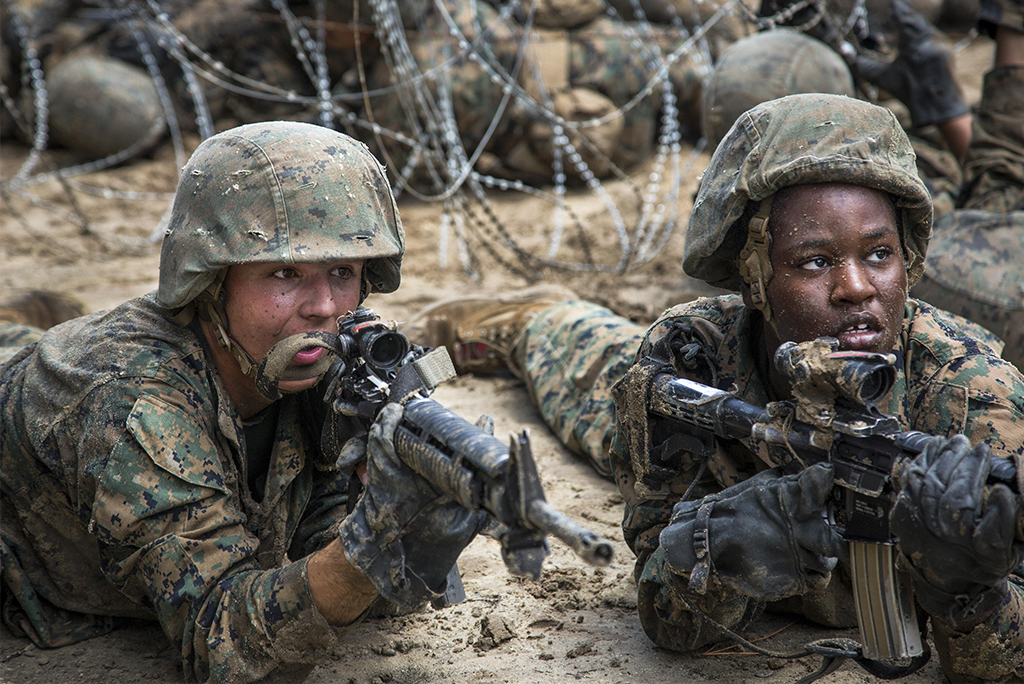
By Cheryl Magness
On Veterans Day, Nov. 11, 2017, the LCMS Commission on Theology and Church Relations (CTCR) approved the adoption of a new report, “Women and Military Service: A Lutheran Perspective,” which offers a biblical foundation for considering the topic of women in the military.
Brief but sweeping in scope, the report includes historical, theological and practical considerations for women, their families, pastors and others facing the issues surrounding women and military service.
The question of women in combat has come into focus in the LCMS in recent years, following societal shifts in the late 20th and early 21st centuries regarding not only warfare but male/female roles.
These societal shifts culminated in 2015 in a major change in U.S. policy regarding women in the military when U.S. Secretary of Defense Ashton Carter announced that all combat positions in the United States military would now be open to women.
A year later, in 2016, the U.S. Senate overwhelmingly (85-13) passed the National Defense Authorization Act, which included an amendment requiring women to register for Selective Service. The U.S. House of Representatives, however, did not include the amendment, and the issue of drafting women was set aside for the moment.
In 2004, 2007 and 2010, overtures related to women and military service were formally submitted to the Synod in convention, but no resolutions were adopted.
Then, in 2013, the Synod adopted Res. 2-12A, “To Speak Regarding Employment of Women in Military Combat,” and in 2016, Res. 5-11A, “To Protect Christian Consciences and Address Conscription of Women.”
Res. 2-12A (2013), noting the impending plan to lift the U.S. Department of Defense’s ground combat exclusion for women, resolved to support those with a religious and moral objection to women serving in ground combat, and called for the CTCR to study the issue and produce a statement for the 2016 convention.
Res. 5-11A (2016) similarly called for supporting those who conscientiously object, and requested continued study by the CTCR, with a goal of producing a document “for widespread distribution and use in the church.”
The report begins by providing some background on cultural and historical developments that have led to women being considered not only for combat, but for the draft.
A few such developments are the equal rights movement, the U.S. transition from a military draft to an all-volunteer force, and “the evolution of combat tactics of enemy forces in war to a nonlinear battlefield (also called asymmetrical warfare) in which, by definition, there is no set line of battle or clear articulation of what is behind combat lines,” according to the CTCR report.
The report goes on to present a theological basis for approaching the question of women serving in the military, exploring topics of vocation, the Two Kingdoms, the Order of Creation and Scripture’s teaching about conscience.
Finally, the report offers practical advice to Christians who want to conscientiously object and to the pastors who are called to care for them.
Obtaining Conscientious Objector status is an involved process that requires a written application outlining the candidate’s specific reasons for objection, an interview with a military chaplain and a formal hearing. As explained in the report, if an individual’s application for Conscientious Objector status is denied, he or she may consider civil disobedience.
Acknowledging the complexities of the issue of women serving in the military, the CTCR report seeks to say “neither more nor less than Scripture itself says.”
The CTCR’s study of the issue, says the Rev. Larry Vogel, associate executive director of the CTCR, “therefore leads it to affirm — based on the weight of evidence from Scripture, natural law and reason — that LCMS 2016 Res. 5-11A was correct to ‘strongly oppose any legal action that forces the compulsory service of women in the military,’ including service in mandatory combat roles.”
Vogel adds that the CTCR “also supports the same resolution’s defense for women whose consciences lead them ‘to voluntarily serve in our nation’s military’ in various capacities, including combat.”
Download free report
Cheryl Magness (cheryl.magness@lcms.org) is managing editor of Reporter Online and staff writer for LCMS Communications.
Posted March 14, 2018